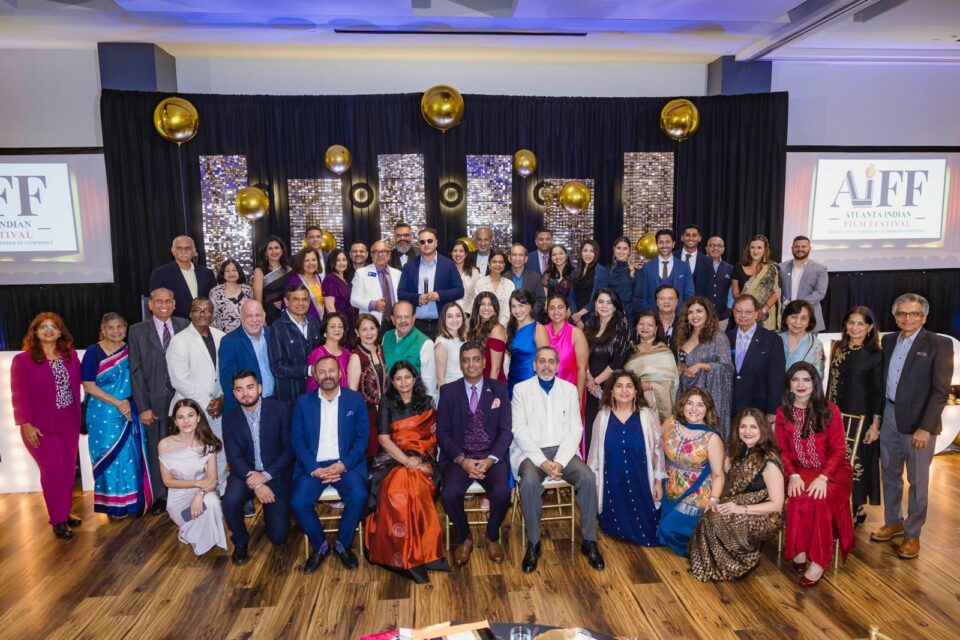BY JYOTHSNA HEGDE & NAMITA DOGRA SUDAN
Atlanta, GA, October 8, 2025: The curtain rose on the Atlanta Indian Film Festival (AIFF) 2025 with an opening night that felt like stepping into the first frame of a grand cinematic journey. On Friday, September 26, 2025, the red-carpet glamour of the Opening Night Gala unfolded at the Twelve Midtown, Autograph Collection, where the energy of Atlanta’s film lovers and the brilliance of Indian cinema merged into a vibrant reel of culture, conversation, and connection.
Before the evening lights dimmed for the gala, the festival began with a meet-the-press session, offering a thoughtful prelude to the celebrations. The session introduced jury members and visiting filmmakers to Atlanta’s media, with Anita Ninan and Pamila Dembla representing the Georgia Indo-American Chamber of Commerce (GIACC).
In response to questions from NRI Pulse, acclaimed actor Shishir Sharma offered candid insights into his journey and the changing landscape of Indian entertainment. Reflecting on his landmark web series Permanent Roommates, he said, “It was the very first web series produced in India. We shot the first season out of sheer commitment to the format—none of us were paid. And yet, it blew the internet away. It showed us the power of digital storytelling.”
He also spoke about his evolving work ethic, noting, “I could finally afford to be selective. Work kept coming, but I had the freedom to say no to the riffraff and choose only projects of quality.” On a personal note, Sharma revealed this was his first major public appearance in months, having recently recovered from three fractures in his ankle.
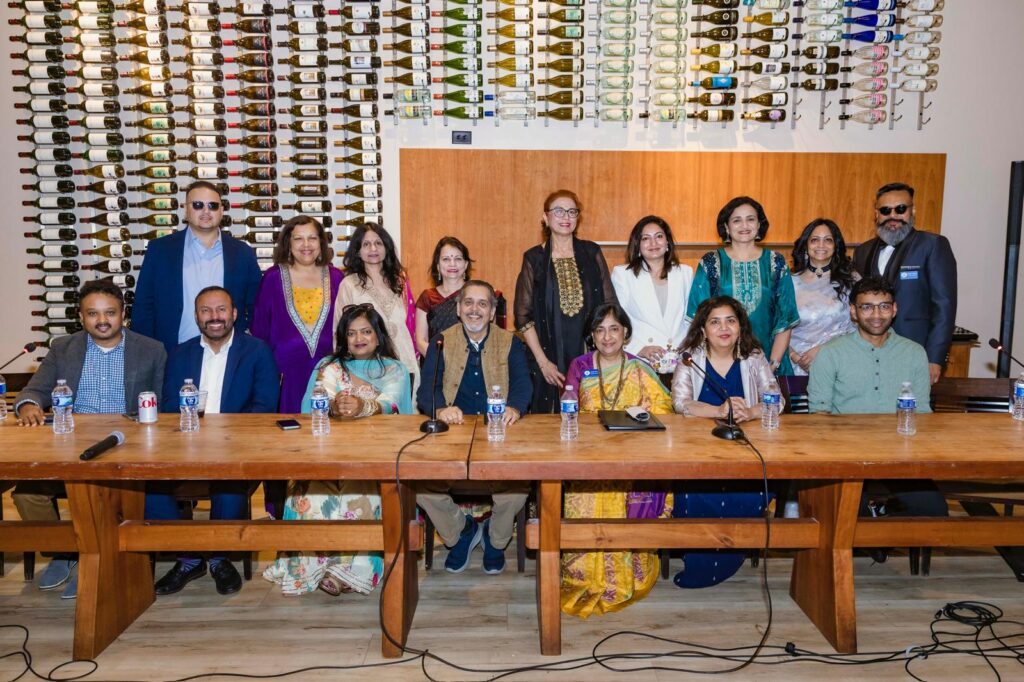
Asked about the future of Indian art forms, Sharma drew a sharp contrast between theater, cinema, and OTT platforms: “Hindi theater doesn’t get the priority it deserves compared to regional theater. Cinema, too, is struggling—taking a family to the theater costs too much. OTT, on the other hand, is affordable. That’s where the industry is headed.”
The session provided a thought-provoking prologue to the festival, offering the media and attendees an authentic glimpse into the evolution of Indian entertainment.
The Opening Night Gala that followed shimmered with energy and cultural pride. Anchoring the evening with effortless wit was comedian Zain Sharif, who not only emceed the gala but also set the rhythm of the night like a seasoned storyteller. His quick humor kept the crowd engaged, perfectly paving the way for the evening’s special guests. Gracing the event was acclaimed actor Shishir Sharma, bringing the aura of Bollywood to Atlanta, alongside the celebrated actor Rizwan Manji. A major highlight of the gala was the lively panel discussion where Sharma and Manji, in conversation with SCAD professor and filmmaker Asad Farooqui, shared rare insights about navigating Bollywood, Hollywood, and the spaces in between. Their candid reflections pulled back the curtain on the challenges and opportunities of global cinema, offering audiences a glimpse into the realities behind the screen.
Congratulatory messages from Georgia Governor Brian Kemp and U.S. Senator Jon Ossoff further underscored the festival’s growing stature as a bridge between cultures and a beacon for creative collaboration.
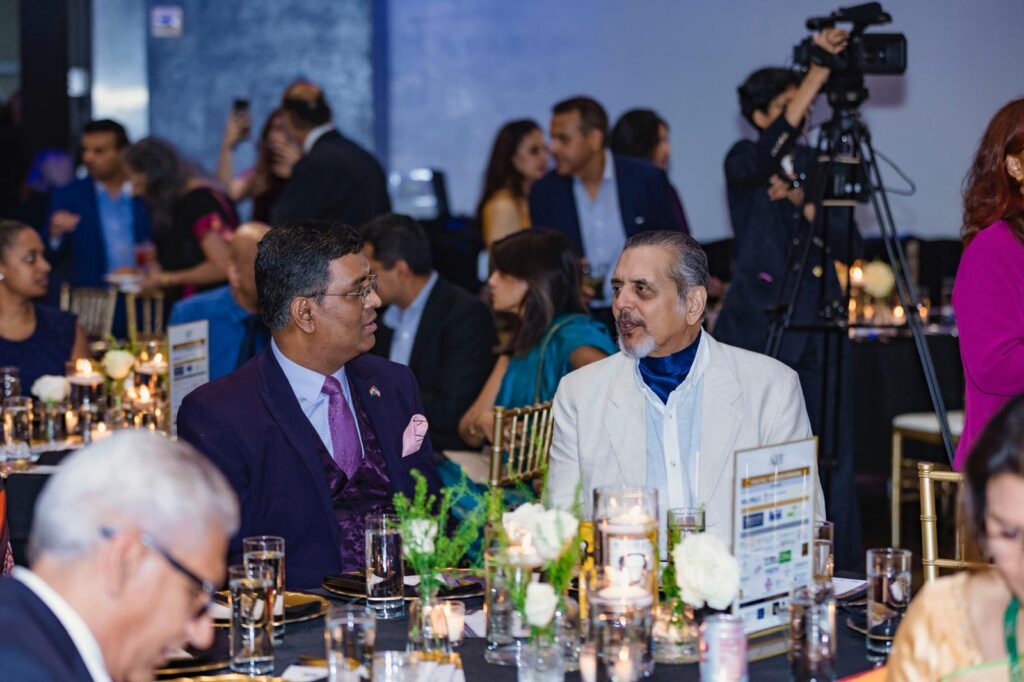
During the evening, Consul General of India in Atlanta, Ramesh Babu Lakshmanan, spoke passionately about India’s creative evolution and Atlanta’s growing role in global storytelling. He called Georgia the “Hollywood of the South,” noting that “creativity and innovation are what keep the movie industry alive. Cinema changes us, moves us, and connects us—it’s more than entertainment; it’s an expression of who we are.” He highlighted how film continues to inspire audiences worldwide and commended AIFF for keeping that tradition vibrant in Atlanta.
Adding to his message, Deputy Consul General Sreejan Shandilya extended his congratulations to the organizers, remarking, “I congratulate the Georgia Indo-American Chamber of Commerce (GIACC) for organizing the Atlanta Indian Film Festival (AIFF), which has grown into the largest Indian film festival in the Southeastern United States. The festival brought together a diverse collection of independent films from across India, serving as a vibrant platform to celebrate the depth and creativity of Indian cinema and to foster greater awareness and appreciation throughout Georgia.”
He further emphasized the Government of India’s commitment to global creative collaboration: “The Consulate will continue to extend full support toward promoting Indian films internationally and warmly invites filmmakers to explore the vast opportunities available for filming in India.”
One of the gala’s highlights was the lively panel discussion where Sharma and Manji, in conversation with SCAD professor and filmmaker Asad Farooqui, shared rare insights about navigating Bollywood, Hollywood, and the spaces in between. Their candid reflections pulled back the curtain on the challenges and opportunities of global cinema, offering audiences a glimpse into the realities behind the screen.
Both actors acknowledged the inherent challenges and struggles in the industry, especially for aspiring artists. Rizwan Manji, known for his work in projects like Americanizing Casey (2001), recalled how his career momentum was dramatically stalled by real-world events.
“We were surprised by the reception that it got… We were like, ‘Oh, this is our big chance! This is our big break.’ 9/11 happened, and it kind of… it actually it stopped in its tracks, right? Like the stuff that we were getting auditions for were now like, ‘can you play the terrorists’ and stuff. So it was very, very hard to continue… I was like, ‘I can’t do this anymore,’ so I actually applied to law school.”
However, Manji emphasized that the artistic fulfillment made the struggle worthwhile. “This is it’s a difficult industry… but I think it’s worth it when you do get a chance to use your creativity because it has been a lot of satisfaction for me. And I’m glad I stayed here.”
Shishir Sharma, an established Indian film and television actor, spoke about a profound moment of doubt despite continuous work.
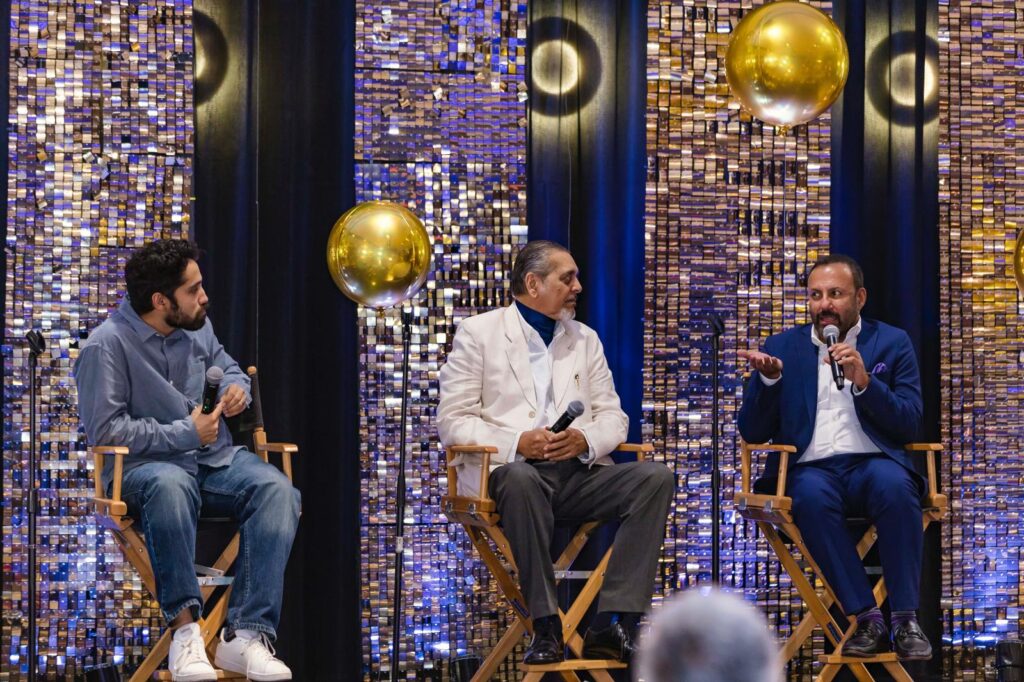
“To be very frank, I did not struggle. Really? No, I did not. I was fortunate enough to start doing television in the year 1994, and I never stopped till one day… there wasn’t any work for me. For 11 months, I stayed at home and I thought to myself, ‘Am I good enough for this industry?'”
Sharma eventually returned to work, calling the pause a cyclical part of a creative life.
The conversation naturally turned to the modern requirement of self-taping for auditions, a practice both actors found technically challenging and emotionally taxing. Sharma highlighted the difficulty of producing a quality audition without a scene partner.
“I said, I can’t do a self tape. It’s impossible, because there isn’t anyone to give me those lines, I have to memorize the lines and it would be if he was in front of me and then speak my lines. So, it’s impossible to do all the things at one time.”
Manji shared the toll that self-taping can take on mental health due to the sheer volume of auditions required for a single role.
“It can get very depressing because, you know, usually when it was initially, when there was no self taping, they would call in about 10 and maybe 15 people right for an audition… But with the self tape, they’d call in a thousand people and they may not watch it, so it can feel very depressing because you send in a lot of them. So for my own sanity, I don’t just send in every self tape.”
The panel concluded with a mention of the actors’ latest projects. Sharma described his upcoming film, Rasa, as a story where he plays a chef with the ability to influence others’ emotions.
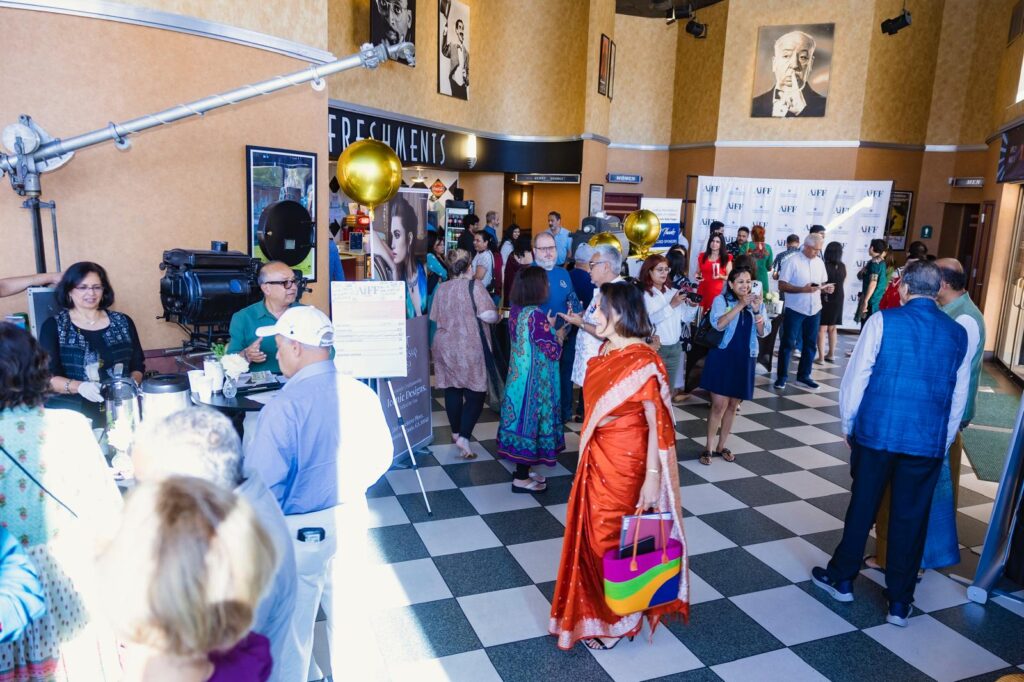
“Rasa is the short form of Navrasa, which are the nine emotions that everyone has… those nine emotions are served in the form of food in this film, and I am the chef.”
Manji also announced the release of his independent film, Re-Election.
“It’s an independent film and it’s we shot it two years ago and how hard it is to get distribution. And finally, after two years, Picturehouse Release the base thing finally took it on.”
The discussion offered the audience a frank look behind the curtain of the acting world, emphasizing that success comes through hard work, resilience, and a deep respect for the craft.
The festival moved like a reel unspooling, transitioning into two packed days of screenings, panels, and workshops at the Tara Theatre on September 27 and 28. Each film was a story-bead on a cinematic necklace—distinct in tone, yet strung together by the common thread of truth, identity, and artistry. 16 short films and two feature films were showcased, alongside candid conversations, filmmaker workshops, and the inaugural Atlanta Indian Film Bazaar (AIFB), a pitching competition spotlighting the creativity of Indian diaspora filmmakers in the United States.
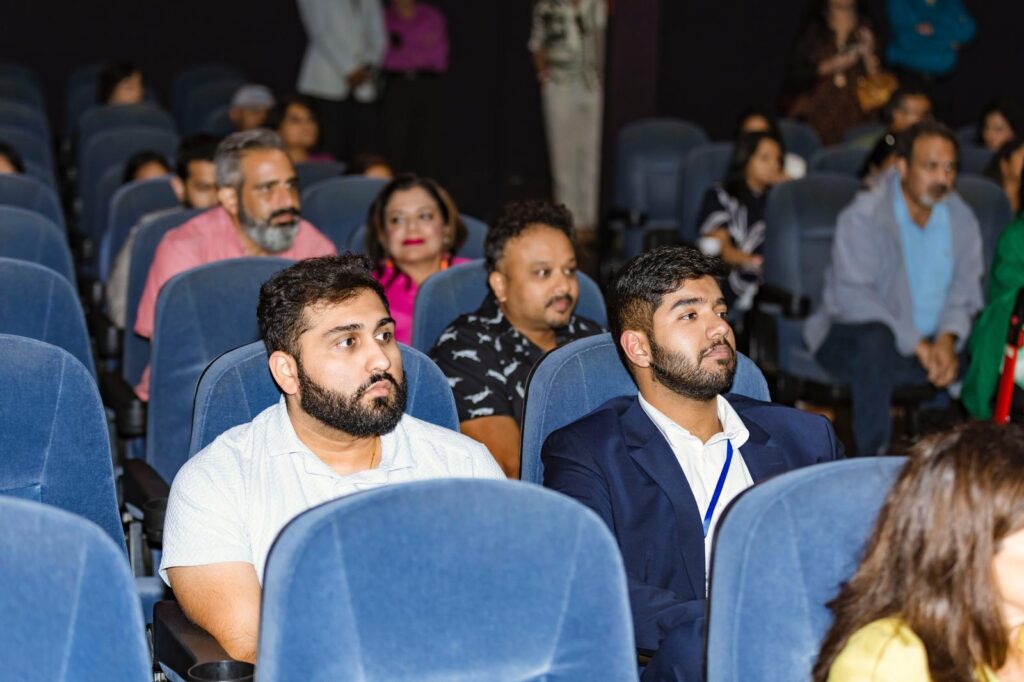
Saturday’s screenings zoomed in on India’s rural heartlands, revealing frames of resilience and survival. The Great Giant Wheel of Life (Hindi) offered a thrilling twist of fate, while Mera School inspired with its portrait of a young boy’s determination to study against all odds. The Rajasthani short Ru Ba Ru captured, with unflinching dignity, the lives of two sisters caught between tradition and survival. Afternoon reels carried deeper social critique, from the poignancy of Ek Wajah (The Reason) and the optimism of Badalav Republic to the tender humanity of the Kashmiri short The Daily Bread (GIRRD). The day concluded with Omlo (Rajasthani), a feature film that juxtaposed the innocence of a boy and his camel with the harsh confinements of family and society—a closing frame that lingered long after the credits rolled.
On Sunday, the focus shifted to the diaspora lens, capturing the fragmented yet powerful narratives of South Asian lives abroad. Louis (English) delicately traced the contours of grief between an immigrant father and son, while Fragments of Us (Telugu, set in Texas) wove together love, marriage, and self-discovery in a cross-cultural landscape. Analog (English) offered a tense thriller on ambition’s destructive pursuit, while bold shorts like Silent Cycle and Vyarth (In Vain) confronted menstruation taboos and professional despair head-on. The festival closed on a resonant note with Rasa(feature), directed by Angith and Preetish Jayaraj and starring Shishir Sharma. Centered on a young chef’s apprenticeship with a mysterious culinary master, the film was a meditation on art, mentorship, and the emotional flavors of life itself.
Beyond the screen, workshops gave aspiring filmmakers tools for storytelling, from script to screen. Sessions led by Sharma and visiting directors Sanjeev Kumar, Akshay Shirke, and Sushanth Nallapareddy—moderated by jury member Prerna Saraff Chauhan—offered invaluable lessons in craft and creativity.
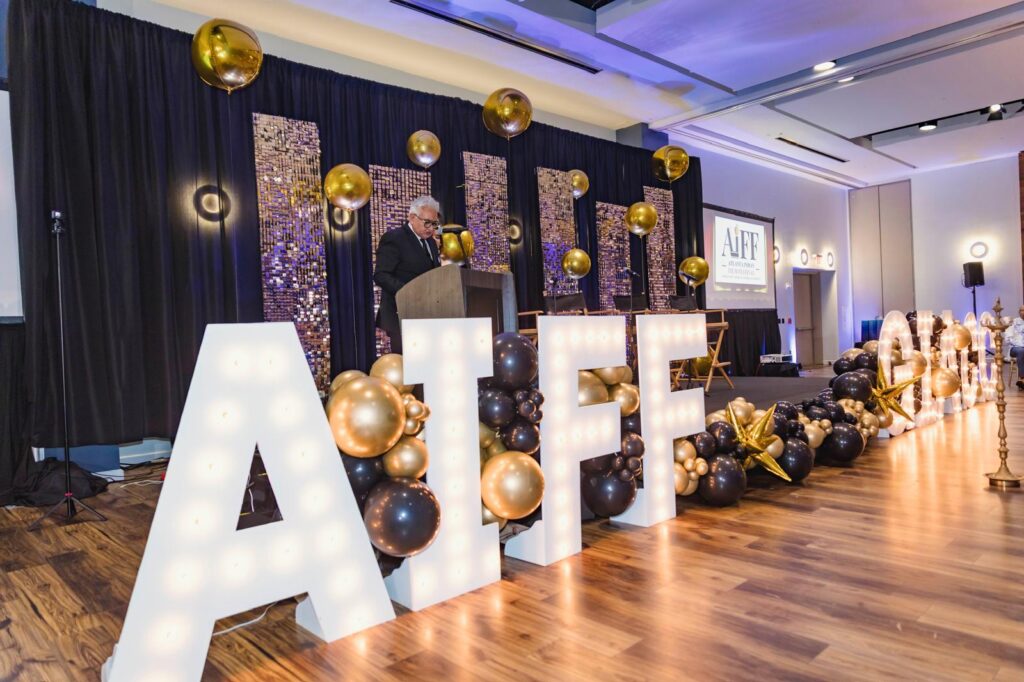
The festival concluded with its awards ceremony, celebrating cinematic excellence. Omlo (Rajasthani) won Best Movie – Feature, The Great Giant Wheel of Life (Hindi) earned Best Movie – Short, Sushank Verma received Best Director – Short for Ek Wajah (The Reason), and Kapil Talwar was honored with Best Cinematography – Short for Ru Ba Ru. The Atlanta Indian Film Bazaar (AIFB), the festival’s first-ever pitching competition, gave diaspora filmmakers a powerful new platform to bring their visions to life.
Reflecting on the festival’s impact, Director Pamila Demla said: “The Atlanta Indian Film Festival proved to be an unforgettable experience, widely hailed by attendees as one of the best editions to date. Held with immense passion and precision, the festival brought together a vibrant mix of films, talent, and powerful conversations that left a lasting impact on audiences and participants alike.”
At the festival’s awards ceremony, excellence in filmmaking was celebrated across categories. Omlo (Rajasthani) won Best Movie – Feature, The Great Giant Wheel of Life (Hindi) earned Best Movie – Short, Sushank Verma received Best Director – Short for Ek Wajah (The Reason), and Kapil Talwar was honored with Best Cinematography – Short for Ru Ba Ru.
AIFF also marked a milestone with the launch of the Atlanta Indian Film Bazaar (AIFB)—the festival’s inaugural pitching competition empowering Indian diaspora filmmakers in the U.S.
Reflecting on the festival’s success, AIFF Project Director Anil Kumar said, “This is the beauty of film—it connects us, inspires us, and reminds us of our common humanity.”
The success of AIFF 2025 was the result of collaboration, creativity, and commitment. Jay Joshi (President, GIACC) emphasized the power of teamwork: “Finally, a special note of appreciation to the AIFF Executive Committee and volunteers for tirelessly working the last few months to make this possible.”
Grace Puri-Multani (Chairperson, GIACC) reflected on the festival’s growth: “Over the seven years, AIFF has grown into a thriving celebration of independent cinema. This is in perfect alignment with GIACC’s mission to strengthen economic and cultural ties between Georgia and India.”
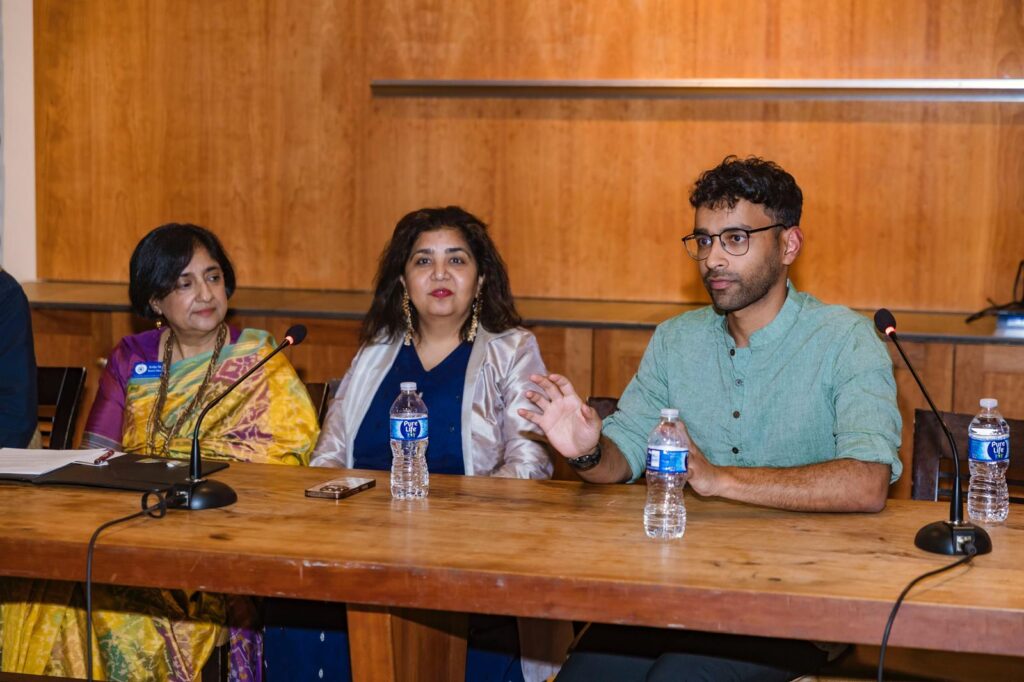
The integrity of AIFF’s programming stems from its rigorous selection process. As explained by Pamila Demla and jury member Prerna Saraff Chauhan, submissions—typically numbering 60 to 100 annually—are scored independently by a jury panel using over 25 evaluation parameters. An external CPA firm validates and aggregates the results into a ranked list, which the jury reviews before the final lineup is curated. This year’s jury included Bharath Tejasvi, Vyanti Joseph, Prerna Saraff Chauhan, Anuj Jain, and Puneet Sibal.
The AIFF 2025 Executive Committee included Anil Kumar, Project Director; Pamila Dembla, Films and Workshops; Adil Devshi, Media and Marketing; Ria Mushfiq, Gala Event Planner; Jayant Joshi, Sponsorship Chair; Vaishali Joshi, Sponsor Outreach and Ticketing; Swapnali Mehta, Treasurer; and Sonjui Kumar, Advisor.
The festival was organized under the banner of the Georgia Indo-American Chamber of Commerce (GIACC), whose 2025 Executive Committee is led by Grace Multani (Chairperson), Jayant Joshi (President), Anil Kumar (Vice President), Daniel Preston (Secretary), and Swapnali Mehta (Treasurer). The Board Members include Vijay Bahl, David Gault, Amber Mehta, Anita E. J. Ninan, Nick Patel, SK Raj, Jigna Shah, and Vaishali Joshi.



